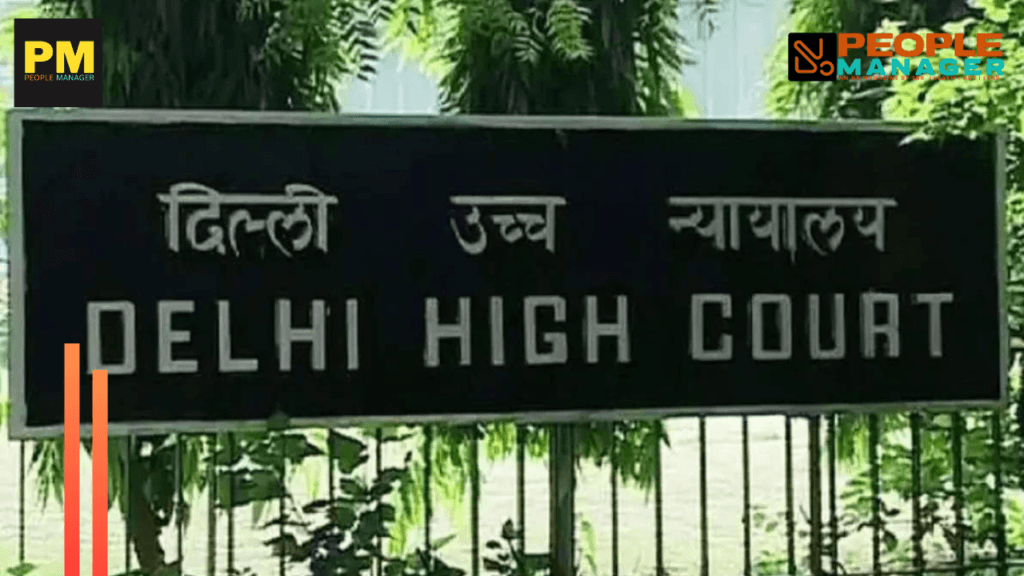Employer’s harsh decision not a ground to book him for employee’s suicide: Delhi High Court
“This Court is of the considered opinion that person holding a certain post, whether in private sector or public sector, in the course of duties have to take certain decisions which at time can be harsh causing hardship to an employee. The same cannot, in the absence of the requisite mens rea, be termed as an action which would amount to incitement/abetment in terms of Section 306 of the IPC,” the Court observed.

The Delhi High Court recently ruled that an employer who makes harsh decisions in the course of his duties cannot always be held responsible for the suicide of an employee affected by such decisions, unless the employer had criminal intent to drive such an employee to commit suicide [Dr. G.K. Arora vs. State & Anr.].
The Court stated that in performing his duties, the employer may make decisions that may cause difficulty to the employee, but this does not constitute the offense of abetment of suicide unless the employer has a criminal purpose to abet the suicide.
Justice Amit Sharma made the statement while dismissing a trial court summons to Dr. GK Arora, the former principal of BR Ambedkar College at Delhi University, and a senior assistant named Ravinder Singh (petitioners) in a 2013 suicide abetment case.
“This Court is of the considered opinion that person holding a certain post, whether in private sector or public sector, in the course of duties have to take certain decisions which at time can be harsh causing hardship to an employee. The same cannot, in the absence of the requisite mens rea, be termed as an action which would amount to incitement/abetment in terms of Section 306 of the IPC,” the Court observed.
The petitioners contested the trial court’s order to call them in connection with the death of a former college employee who committed suicide in 2013.
The female employee self-immolated in front of the Delhi Secretariat in 2013 and later died from her injuries after making a police statement.
In her statement and suicide note, the deceased employee criticized the petitioners as well as numerous authorities, including Delhi University’s Vice Chancellor and the late Chief Minister of Delhi, Sheila Dikshit, for failing to help her.
Notably, she accused the petitioners of subjecting her to a severe task as well as physical and emotional harassment. She further stated that the higher authorities had not responded on her reports about such harassment. She also claimed that she was unlawfully discharged from service in 2012.
However, the Court determined that the dead employee’s previous concerns had been properly considered and resolved by the relevant authorities.
Furthermore, the Court noted that there was more than a year between the dead employee’s cessation of service and her death. It was found that during this time period, the petitioners did not communicate with the dead employee or do anything that might have caused her to commit suicide.
“There is nothing on record to demonstrate that the petitioners were in contact, in any manner, with the deceased post her termination and immediately before the attempted suicide. In fact no overt or covert act(s) has been attributed to the petitioners which was proximate to the time of the attempt to suicide by the deceased,” the Court said.
The Court concluded that the trial court order did not explain how a case of abetment of suicide under Section 306 of the Indian Penal Code (IPC) was made out from the allegations in the suicide note, especially since the police had sought to file a closure report claiming that there was insufficient evidence to support such a case.
As a result, the trial court order was quashed.
“All the complaints filed by the deceased were closed after due enquiry. The said complaints were dealt by different statutory bodies which were not under the immediate control of petitioner no. 1. The grievance of the deceased in the suicide note was in fact just not against the present petitioners but also against other persons mentioned therein. The said note even blamed the Hon’ble Chief Minister, Delhi as well as Vice Chancellor of Delhi University. The incident of attempted suicide has already been enquired into by the Enquiry Committee constituted by National Commission for Women and Shri B.L. Garg Commission apart from the present chargesheet in which the petitioners stand exonerated. Therefore, in the facts and circumstances of the present case, the present petitions are allowed,” the Court reasoned.
Advocates Richa Kapoor, Kunal Anand, Jai Batra, Saloni Mahajan, Sandesh Kumar, Sakshi, and Atika Singh represented Dr. GK Arora and Ravinder Singh.
Amit Ahlawat, Additional Public Prosecutor, represented the state.
For a deeper insight into the evolving workplace paradigm, stay tuned to PeopleManager.co.in.
- Union Budget 2026-27 : Yuva Shakti Budget Big Numbers, Slow Payoff - February 4, 2026
- AI in HR: Why ROI Isn’t the Right Question—Yet - September 8, 2025
- The Hidden Cost of Fear in the Workplace: Why Generational Optimism Isn’t Enough - September 2, 2025








